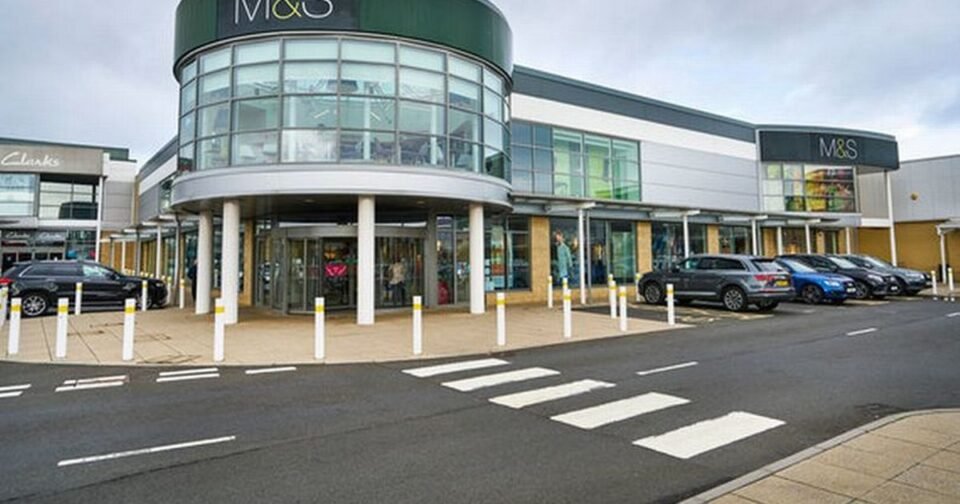Commercial investment volumes in Scotland totalled £1.49bn in 2023 – a 34% decline on last year’s figure.
While this overall fall can be attributed to ongoing economic uncertainty, the second half saw a marked improvement on the first half of the year, up 39% when compared to the second half of 2022.
Despite a national decline in retail investment, the asset class saw transactions totalling £714m in Scotland, more than 50% up on offices at £357m, according to the latest Savills’ data. This was followed by industrial, leisure and alternatives at £172m, £144m and £105m respectively.
The retail sector’s popularity in Scotland is largely due to the strength of the occupational market. This is especially true in popular destinations such as Buchanan Street in Glasgow and George Street in Edinburgh, which have weathered the storm seen during the pandemic and remain attractive, given continued rental growth as a result of a lack of supply.
As one of the first sectors to suffer during Covid-19, pricing has since corrected, affording investors a degree of certainty not yet achieved in other asset classes, the analysis stated.
In terms of buyer type, overseas investors were the most active for a second year running, accounting for almost 46% of all transactions at £680m. However, this was a considerable decline on 2022, which saw £1.025bn of foreign money spent on Scottish commercial property.
Although, Savills noted that this drop comes as no surprise, given recent macro global events.
Property companies (£342m), private investors (£187m) and UK institutions (£127m), also remained active in the market.
Key deals across all asset types included the sale by Savills of Craigleith Retail Park in Edinburgh to Realty Income Corporation for more than £60m and Livingston Shopping Centre in West Lothian to LCP and Evolve Estates for £45m.
The acquisition of 191 West George Street in Glasgow by Corum for £36.4m and the sale of the Waldorf Astoria hotel in Edinburgh to Henderson Park for £82m were also highlighted.
Looking ahead to 2024, Savills anticipates that Scottish commercial property will remain appealing to many investors. As pricing continues to adjust to the new market paradigm – which it has done comparatively quickly compared to many other international markets – this will provide the opportunity to deliver very attractive income returns.
Aly Wright, director in the Scottish investment team at Savills, commented: “As we know the investment market across the UK has been impacted by ongoing uncertainty, with pricing yet to find its footing.
“However, Scottish investment figures have remained relatively robust, at only 27% below the 10-year average.
“What is also interesting to note is the type of asset investors are buying, with retail investment in Scotland seeing the highest level of transactions since 2016,“ he continued. “Although we continue to see uncertainty in the office sector, given the drive to repurpose obsolete stock, the investment rationale for up and built, well located product will become increasingly compelling moving forward, compounded by an extremely limited development pipeline across Scotland’s main centres.
“All things considered, 2023 was a relatively positive year, and whilst we anticipate a slow first quarter of 2024, we are positive this will pick-up post Easter as markets continue to stabilise.”
A separate report from Knight Frank confirmed that around £1.5bn of commercial property assets changed hands in Scotland during 2023, as the market adjusted to the sharp rise in interest rates seen since December 2021.
The independent commercial property consultancy’s analysis of Real Capital Analytics figures found that total investment volumes dropped broadly in line with the rest of the UK.
Edinburgh continued to prove its attractiveness to investors by bucking the trend with a 23% rise in investment between 2022 and 2023, from £558m to £686m.
Glasgow and Aberdeen saw drops of 72% (£1.2bn to £330m) and 63% (£229m to £84m), respectively – however, they both had a strong year in 2022 to compare with.
Industrial’s share of investment volumes remained strong at 45% of 2023’s total, slightly above the five-year average of 40%.
Activity in the office market reached its joint lowest point in the past five years, representing just 13% of investment; but retail’s share has increased from a low of 11% in 2021 to 28% during 2023.
International investors remained the most active buyers of Scottish commercial property, accounting for 62% of investment volumes last year. Private investors represented 15%, as more opportunities opened up for cash-rich high and ultra-high-net-worth individuals against an expensive lending backdrop, while real estate investment trusts (REITs) and listed property companies accounted for just 2% of activity.
Alasdair Steele, head of Scotland commercial at Knight Frank, said: “The last 12 months have seen a huge change in the investment landscape, with interest rates rising 14 times in a row between late 2021 and August 2023.
“That has inevitably had a big impact on the market and many property owners have decided to hold onto their assets – where they can – until there is a greater degree of certainty, while many buyers also paused until borrowing conditions improve.
“With signs that interest rates may have peaked and the economy is beginning to pick up, there are reasons for cautious optimism about 2024; there are a good number of assets currently on the market which should transact in the first half of the year and there are potential buyers showing more interest.
“All things being equal, we could see a rebound from the investment volumes of last year,“ he added. “As the cost of borrowing and interest rates on bank deposits both reduce, commercial property should start to become more attractive.
“It is likely to be a gradual improvement rather than a sudden opening of the floodgates, and we would expect the primary focus to be on good quality, fit-for-purpose assets across various sectors of the market.”
Don’t miss the latest headlines with our twice-daily newsletter – sign up here for free.

